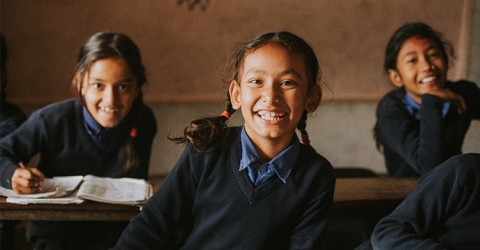
GCED Basic Search Form
Quick Search
You are here
News

How can education advance the status of women and girls worldwide and work towards preventing conflicts, protect the most vulnerable populations and transform societies? This question was at the heart of discussions in Geneva during the Graduate Women International (GWI) 33rd Triennial, Centenary Celebration and One-Day Conference, which was held at the University of Geneva on 25-28 July.
The theme of the year, “Peace through Education”, reflects the recognition of education, in particular education of women and girls, as the cornerstone of peaceful, just and sustainable societies. Ms Saniye Gülser Corat, UNESCO’s Director for Gender Equality, delivered the key-note speech on UNESCO’s vision and framework of action on Education and Peace.
In her video-message, she mentioned UNESCO’s clear position: “No one is born hating others. No one is born considering that some people are worth less than others. […] We must teach commitment to equality, tolerance, respect and dialogue. We must also expose inequalities at the starting-blocks – particularly intersecting factors of inequalities that affect many of the most marginalized, such as gender, socio-economic status, and geographical location.”
Despite the tremendous progress made over the past 20 years, girls are still more likely than boys to never set foot in a classroom. However, the benches at school are the starting point for building peace in the minds of women and men.
In this context, gender equality and global citizenship education are key components to make education systems more inclusive and equal for all. To do so, capacity building of learners is essential. “Teachers, when they are well equipped, can unlock dreams. But they need the training and tools to promote equality, […]” said Ms Corat. In this context, UNESCO develops tools that enable teachers to address in classrooms a range of controversial issues, such as intolerance and discrimination based on religion, ethnicity or gender.
However, all the problems cannot be addressed by teachers and schools alone. Families, community leaders and young people themselves need to play an active role to engage young women and men in promoting positive values of equality and respect for diversity.
Another aspect mentioned by Ms Corat was the digital revolution, which not only creates infinite opportunities, but also brings challenges. In order to achieve a more equal, peaceful and sustainable world, it is vital to help teachers to adapt to the new technologies that are emerging, and UNESCO stands ready to provide them with the knowledge and tools to face the challenges of education in the 21st century.
URL:
